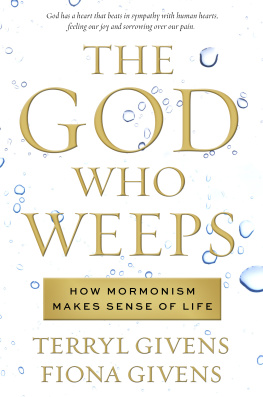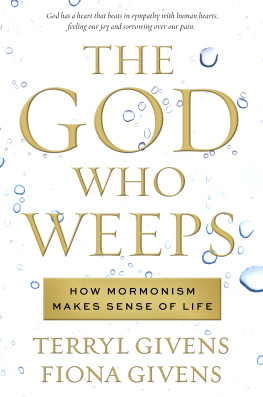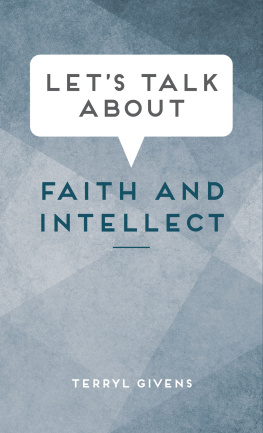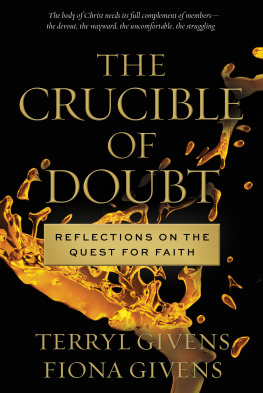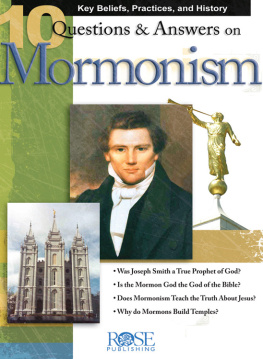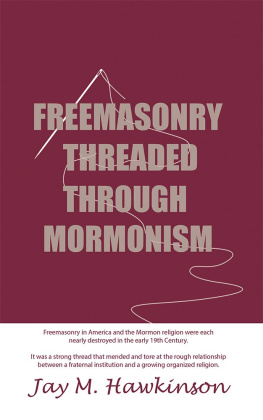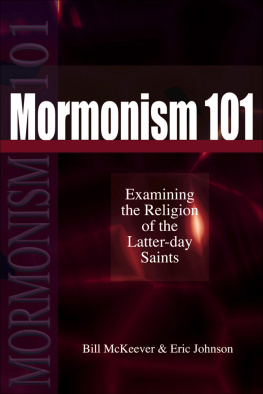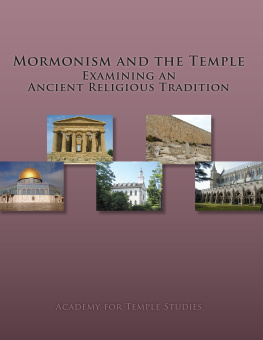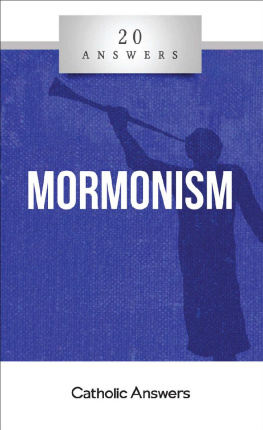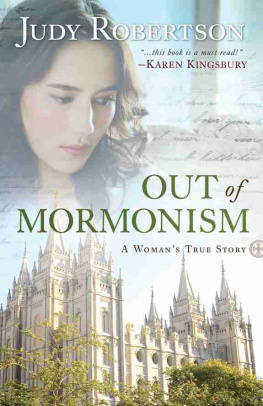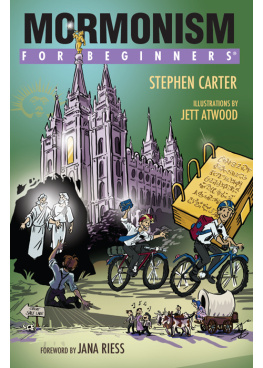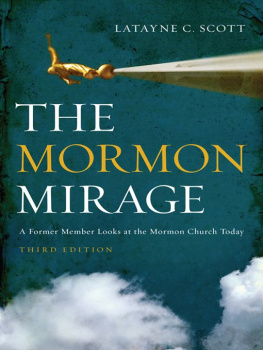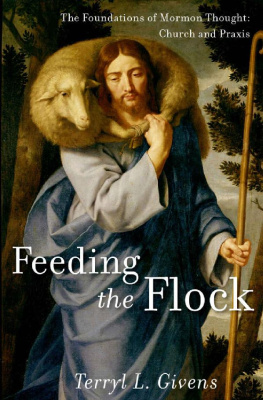Mormonism (or the Church of Jesus Christ of Latter-day Saints)

Oxford University Press is a department of the University of Oxford. It furthers the Universitys objective of excellence in research, scholarship, and education by publishing worldwide. Oxford is a registered trade mark of Oxford University Press in the UK and certain other countries.
What Everyone Needs to Know is a registered trademark of Oxford University Press.
Published in the United States of America by Oxford University Press
198 Madison Avenue, New York, NY 10016, United States of America.
Oxford University Press 2020
All rights reserved. No part of this publication may be reproduced, stored in a retrieval system, or transmitted, in any form or by any means, without the prior permission in writing of Oxford University Press, or as expressly permitted by law, by license, or under terms agreed with the appropriate reproduction rights organization. Inquiries concerning reproduction outside the scope of the above should be sent to the Rights Department, Oxford University Press, at the address above.
You must not circulate this work in any other form and you must impose this same condition on any acquirer.
Library of Congress Cataloging-in-Publication Data
Names: Givens, Terryl, author.
Title: Mormonism : what everyone needs to know / Terryl Givens.
Other titles: What everyone needs to know.
Description: New York : Oxford University Press, [2020] |
Series: What everyone needs to know | Includes index.
Identifiers: LCCN 2020008080 (print) | LCCN 2020008081 (ebook) |
ISBN 9780190885083 (hardback) | ISBN 9780190885090 (paperback) |
ISBN 9780190885106 (updf) | ISBN 9780190885113 (epub)
Subjects: LCSH: Church of Jesus Christ of Latter-day Saints. | Mormon Church.
Classification: LCC BX8635.3 .G575 2020 (print) |
LCC BX8635.3 (ebook) | DDC 289.3dc23
LC record available at https://lccn.loc.gov/2020008080
LC ebook record available at https://lccn.loc.gov/2020008081
To Dan and Maureen
Humor is a prelude to faith and laughter is the beginning of prayer.
Reinhold Niebuhr
Contents
It is often the case that a word originally invoked as a term of derision comes to be toleratedor even embracedby the group to which it is attached. Yankee was not a complimentary label in the revolutionary era but came to be accepted by Americans without protest; Shakers and Quakers were similarly far from affectionate terms when first employed in reference to the physical manifestations of their spirit-filled meetings. Those nineteenth-century Christians who believed the Book of Mormon to be a new revelation from God were called Mormonites and later Mormons in derisive allusion to their belief in their Book of Mormon. Joseph Smith and fellow believers at first resisted the nickname, but it did not take long before he and his followers began referring to themselves with the same word.
Officially, the church was denominated the Church of Christ at its 1830 founding. However, that name was also employed by other groups in the restorationist movement of the early nineteenth century. In 1834, the name was changed to the Church of the Latter-day Saints. This appellation reflected the millenarian preoccupation of many nineteenth-century Americans and the Mormons in particular. Numerous revelations to Joseph Smith had emphasized that he was initiating the final dispensation, the Dispensation of the Fulness of Times, and that the Lords return was imminent. These followers of Christ, as distinct from the disciples of the early church (denominated saints in the New Testament), were gathering in the Latter Days. The term for saints, in the New Testament, means consecrated ones. Hence, a saint was called or challenged or invited to be holy. The name denoted an aspiration, not an accomplishment.
Other permutations on the name followed, but in 1838 a revelation definitively established the official body as the Church of Jesus Christ of Latter Day (soon spelled Latter-day) Saints. The name reflected a scriptural injunction that had until then been followed only erratically. In the Book of Mormon, a prophet asks how followers of Christ should call themselves. In reply, the risen Lord replies: how be it my church save it be called in my name? (3 Nephi 27:8). Consequently, the new name complies with scripture while emphasizing the church as a modern counterpart to the early Christian disciples.
Mormonism, however, has been the dominant moniker if for no other reason than simplicity. Mormon rolls off the tongueand into printso much more readily than member of the Church of Jesus Christ of Latter-day Saints. In recent decades, the churchs leadership has from time to time attempted to turn back the clock, appealing to members and media outlets alike to employ the full and proper name as a sign of respect and deference. This has happened concurrently with efforts, in the face of frequent misrepresentation, to emphasize the Christ-centered nature of the church. When Russell M. Nelson assumed the presidency in 2018, he renewed calls for a course correction. These most recent calls have offered The Church of Jesus Christ as an acceptable shorthand for the full title, rather than the previous alternative, the LDS (for Latter-day Saint) Church. How this will play out in the academy is uncertain. Mormon studies and Mormon history, for example, are solidly entrenched as subdisciplines and are part of common cultural parlance. The churchs decision to rebrand its most famous cultural entity as The Tabernacle Choir at Temple Square is proof that this is a renaming venture with real teeth. Institutional efforts will require the cooperation of media, academics, and a wider public if a historical trend of a century and more is to be reversed.
In that spirit, this book will generally refer to the Church of Jesus Christ and to the churchs members as Latter-day Saints or Saints, with the understanding that the terms Mormonism and Mormons may occasionally need to be used either to refer to a more amorphous cultural entity that transcends the institution or to be consistent with historical context.
The Church of Jesus Christ is a Christian denomination founded in 1830 by Joseph Smith. Neither Catholic nor Protestant, Latter-day Saints believe their church was founded as a restoration of original Christianity, when God directed Smith to preach the fullness of the gospel, in an organization roughly modeled on New Testament forms, performing saving sacraments with authority bestowed on him by angelic messengers. The distinctive hallmark of the church was the Book of Mormon, which Smith published shortly before the churchs founding. It made these early saints a people of the Book, like the Jews, Muslims, and other Christians. The Book of Mormon singled them out as a unique branch of Christianity and gave the group its popular moniker, and its miraculous translation from gold plates was heralded by believers as the most conspicuous sign of Smiths prophetic vocation and authority. Though believers in Jesus Christ as Savior, they espouse a body of doctrine that is often quite distinct from those of their Christian peers.
Smith preached a doctrine of gathering, and his people flocked to gathering sites in Ohio and later Missouri. Fleeing persecution, they settled in Illinois, where they built a temple based on Old Testament precedent, grew by thousands, and created a prosperous community (Nauvoo). In 1844 Joseph Smith was martyred, the Saints were forced into exile, and they settled after a long trek in the Valley of the Great Salt Lake.


